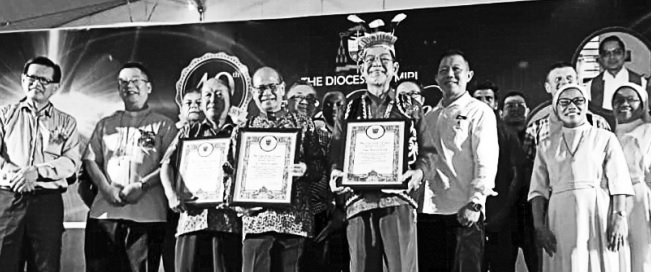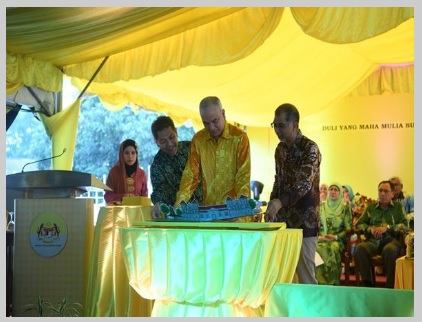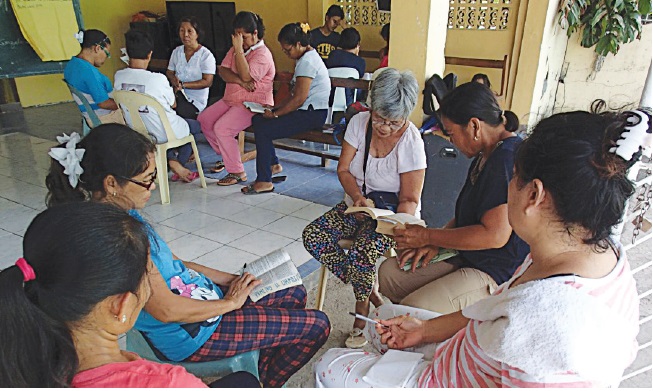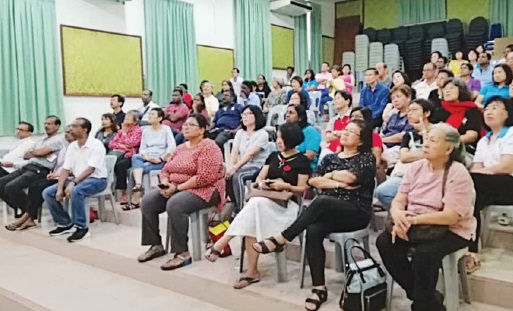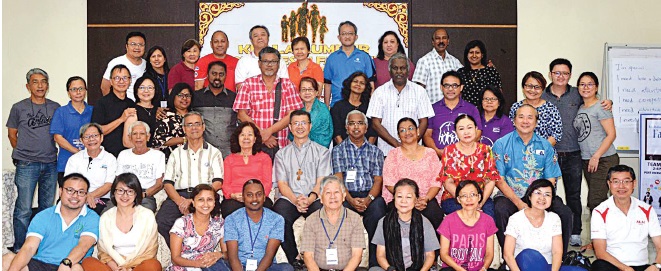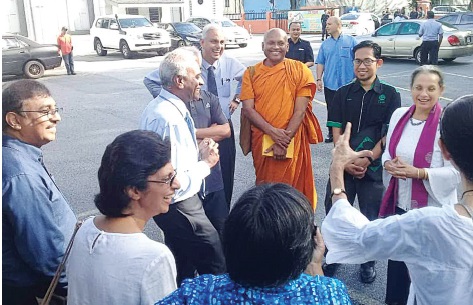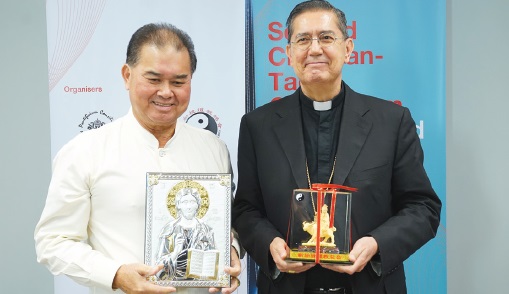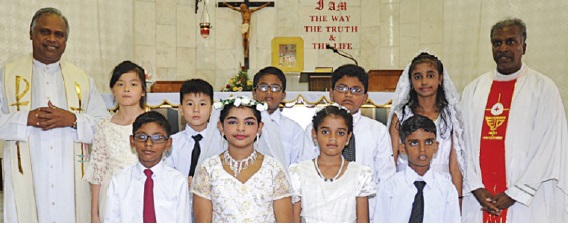Three pioneer local priests, Msgr Francis Kuleh Usat, Fr Philip Empalah and Fr Peter Mering celebrated their 40th anniversary at the Church of Mater Dei on November 20 together with more than 2,000 parishioners.
Msgr Francis, from Long Banyok, Baram and Fr Peter, from Uma Akeh were ordained together on Nov 19, 1978 at Long Banyok, Baram. In the same year, Fr Philip was ordained on Sept 10 at St George’s Church, Sebauh. Msgr Francis and Fr Peter were the first Kenyah priests in Sarawak and Fr Philip was the first Iban Priest to be ordained in the diocease.
Msgr Kuleh is the first Kenyah to become Monsignor.
Bishop Rev Richard Ng and priests from all parishes in the Miri Diocese were present for the celebration.
Among those present were three missionary sisters (Mensa Domini Sisters) from the Philippines who were attached to the Miri Diocese, as well as family members of the three priests, Assistant Minister of Tourism, Arts and Culture, Datuk Lee Kim Shin and wife Datin Christina Kong Shui Lin, Piasau assemblyman Datuk Sebastian Ting.
The Sacerdotal Ruby Celebration Mass started at 4.00pm. The three Jubilarians, accompanied by Bishop Richard Ng and other dignitaries and priests, were given a traditional welcome.
In his homily, Bishop Richard Ng congratulated the three Jubilarians and commended them for their unselfish dedication in carrying out their priestly duties despite the many challenges.
“Like all life’s journey, the journey of a priest is not easy. I am sure our three Jubilarians have their fair share of joys and disappointments, of faithfulness and failures, of being filled with God’s presence and his absence.
“But, in the end, what matters most is that they remain as friends of God and priests for the people of God. We thank and praise God for his choice of our three Jubilarians and for giving them the courage to say ‘Yes’. God not only chose them but also sustained and filled them with his love and mercy,” said Bishop Ng.
There were cultural performances by the various ethnic groups – Kayan and Kenyah dancers, the Melanau and Iban. The jubilarians jointly cut their 40th anniversary cake. Each was given a present with the Papal blessing and gifts.
Miri Diocese covers 53 per cent of Sarawak – stretching from Belaga District to Bintulu, Miri, Limbang and Lawas divisions, with a population of over 97,000 Catholics. Miri alone has more than 12,000 Catholics.
The three priests had dedicated themselves to the service of the various tribes in their parish. The first Catholic mission was actually in Marudi, a settlement on the Baram river, further inland from Miri. With the discovery of oil on the coast, everything was moved from Marudi to Miri in 1912. Fr Henry Jansen, a Mill Hill missionary, was the very first to set foot into the Baram in the 1930s. He started the first Catholic mission in Marudi, followed by Kampung Kuala Tutoh and then Long Banyok (Msgr Francis’ longhouse) before making his way upriver to Long San and Lio Mato in the upper reaches of the Baram river. He went by foot up the mountains to reach the furthest Kenyah and Kayan community. This challenging task of spreading the good news to the Kenyah and Kayan commnnity has been continued by the three priests for 40 years!
Article reproduced from Herald Malaysia online


